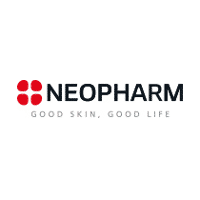AIM:Glucagon is an essential regulator of hepatic glucose production (HGP), which provides an alternative therapeutic target for managing type 2 diabetes with glucagon antagonists. We studied the effect of a novel human monoclonal antibody against glucagon receptor (GCGR), NPB112, on glucose homeostasis in diet-induced obese (DIO) mice.
METHODS:The glucose-lowering efficacy and safety of NPB112 were investigated in DIO mice with human GCGR for 11 weeks, and a hyperinsulinemic-euglycemic clamp study was conducted to measure HGP.
RESULTS:Single intraperitoneal injection of NPB112 with 5 mg/kg effectively decreased blood glucose levels in DIO mice for 5 days. A significant reduction in blood glucose was observed in DIO mice treated with NPB112 at a dose ≥5 mg/kg for 6 weeks, and its glucose-lowering effect was dose-dependent. Long-term administration of NPB112 also caused a mild 29% elevation in glucagon level, which was returned to the normal range after discontinuation of treatment. The clamp study showed that DIO mice injected with NPB112 at 5 mg/kg were more insulin sensitive than control mice, indicating amelioration of insulin resistance by treatment with NPB112. DIO mice treated with NPB112 showed a significant improvement in the ability of insulin to suppress HGP, showing a 33% suppression (from 8.3 mg/kg/min to 5.6 mg/kg/min) compared to the 2% suppression (from 9.8 mg/kg/min to 9.6 mg/kg/min) in control mice. In addition, no hypoglycemia or adverse effect was observed during the treatment.
CONCLUSIONS:A novel human monoclonal GCGR antibody, NPB112, effectively lowered the glucose level in diabetic animal models with mild and reversible hyperglucagonemia. Suppression of excess HGP with NPB112 may be a promising therapeutic modality for the treatment of type 2 diabetes.







